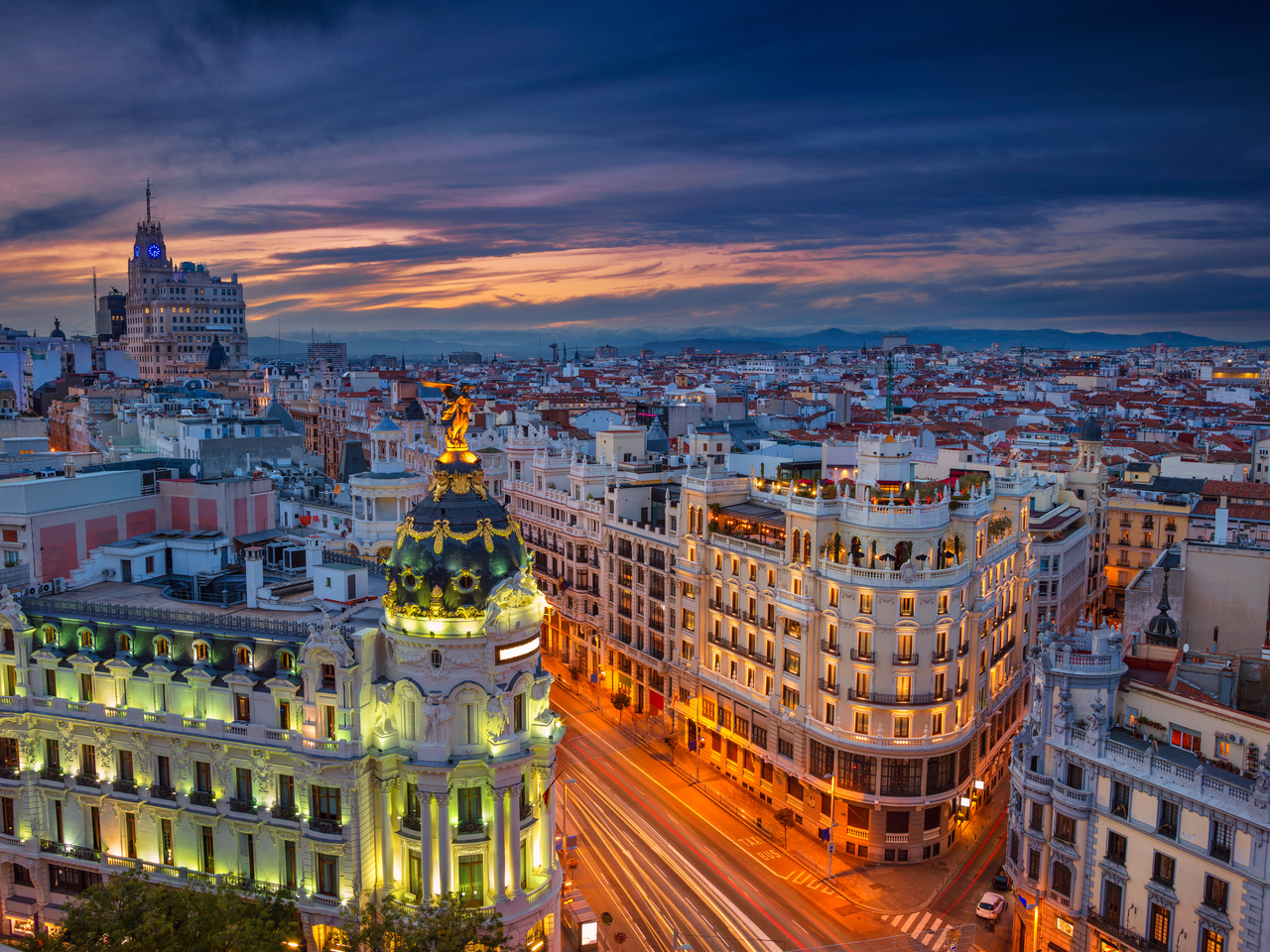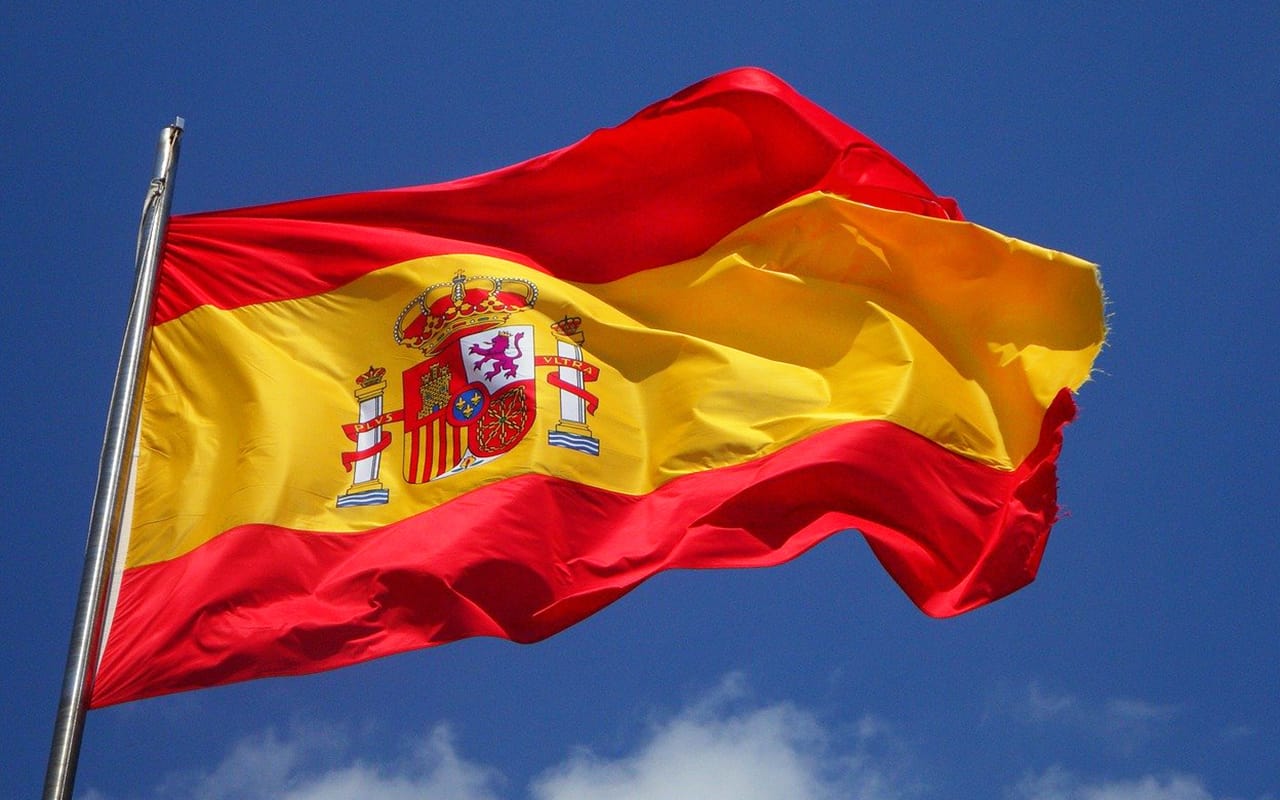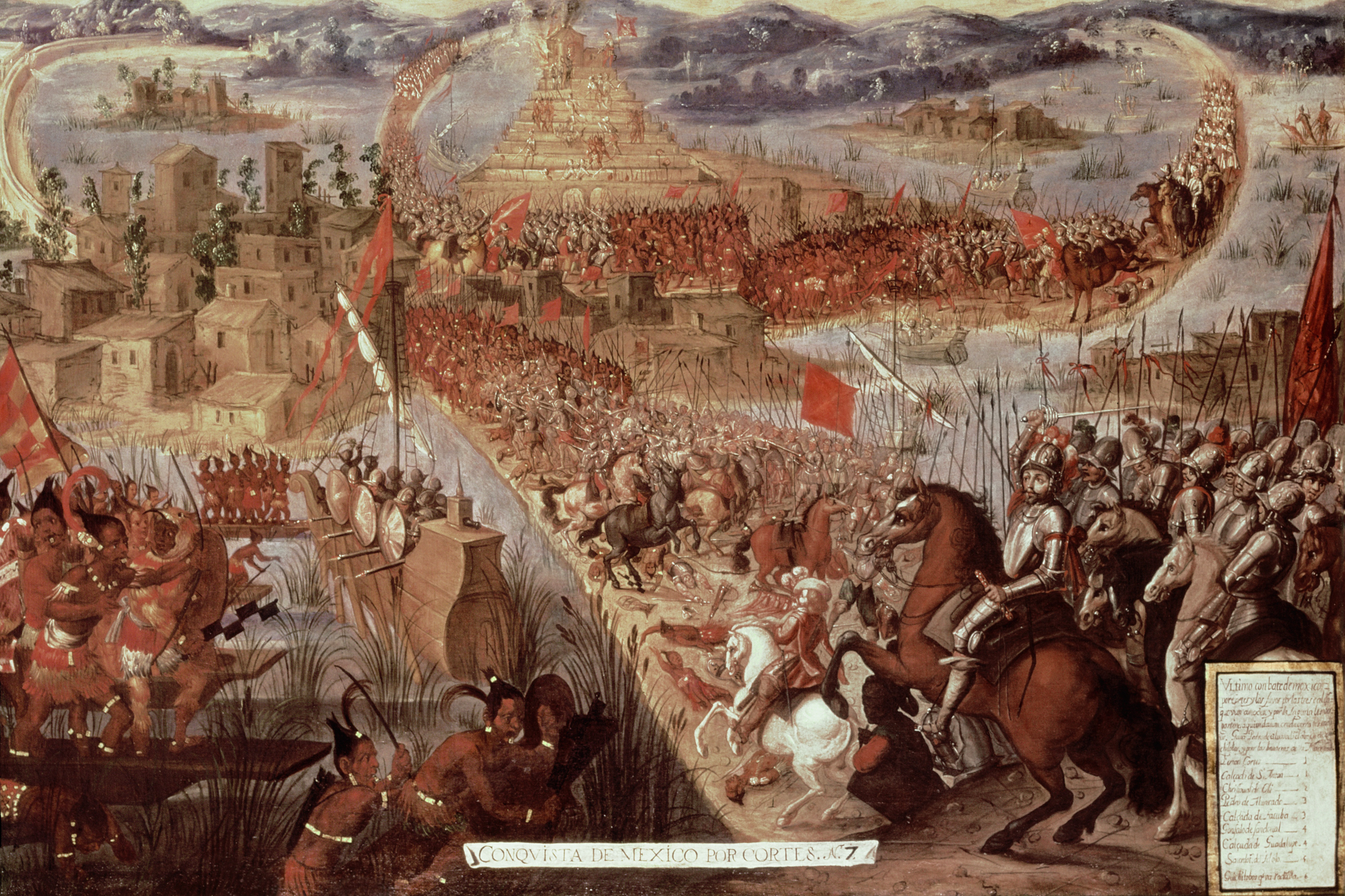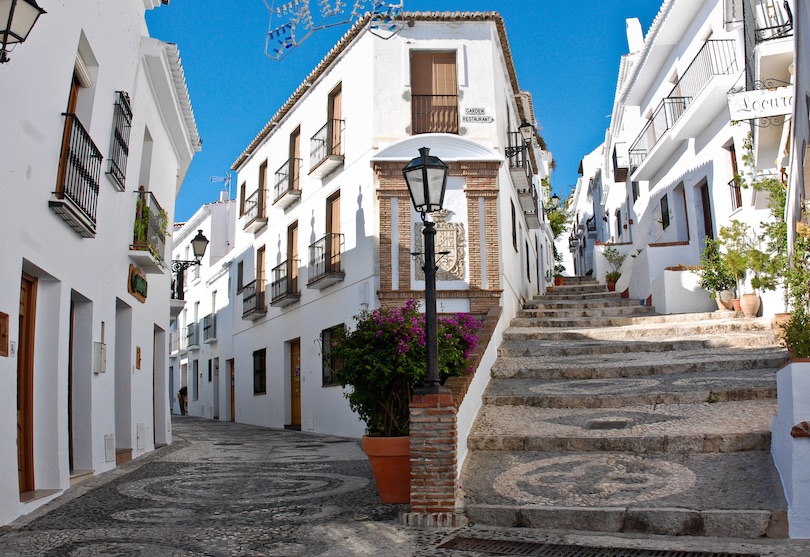Things To Avoid In Spain - Enjoy UNESCO's Third Largest Heritage Country
If you are planning to go to this beautiful country, then you definitely need to know the things to avoid in Spain. This country is one of the world's top tourist destinations, attracting millions of visitors from all over the world each year. Despite the fact that the country is an expert in tourism, there are some key cultural differences to be aware of before visiting.
Author:Michael RachalReviewer:Finn WildeSep 07, 20229.8K Shares759K Views

If you are planning to go to this beautiful country, then you definitely need to know the things to avoid in Spain. This country is one of the world's top tourist destinations, attracting millions of visitors from all over the world each year.
Despite the fact that the country is an expert in tourism, there are some key cultural differences to be aware of before visiting.
Spain Fast Facts
Spain is a storied country of stone castles, snow capped mountains, vast monuments, and sophisticated cities, all of which have contributed to its popularity as a tourist destination. Geographically and culturally, the country is diverse.
The Meseta, a broad central plateau half a mile above sea level, is its heartland. Much of the region has traditionally been dedicated to cattle ranching and grain production; it was in this rural setting that Miguel de Cervantes' Don Quixote took aim at the tall windmills that still dot the landscape in a few places.
The broad Ebro River valley, Catalonia's mountainous region, and Valencia's hilly coastal plain are all located in the country's northeast. The Cantabrian Mountains, to the northwest, are a rugged range with heavily forested, rain-swept valleys interspersed with tall peaks.
The citrus-orchard-rich and irrigated lands of the Guadalquivir River valley, celebrated in the renowned lyrics of Spanish poets Federico Garca Lorca and Antonio Machado, are to the south; over this valley rises the snow capped Sierra Nevada.
The country's southern half is desert, an extension of the Sahara made familiar to Americans by "spaghetti western" films from the 1960s and early 1970s. The southeastern Mediterranean coast and the Balearic Islands, lined with palm trees, rosemary bushes, and other tropical vegetation, enjoy a mild climate, attracting millions of visitors and retirees, particularly from northern Europe.
Spain's countryside is charming, dotted with castles, aqueducts, and ancient ruins, but its cities are cutting-edge. Sevilla (Seville), the Andalusian capital, is known for its musical culture and traditional folkways; Barcelona, the Catalan capital, for its secular architecture and maritime industry; and Madrid, the national capital, for its winding streets, museums and bookstores, and 24-hour lifestyle.
Madrid is Spain's largest city and, for hundreds of years, its financial and cultural center. Castilians, Catalonians, Lusitanians, Galicians, Basques, Romans, Arabs, Jews, and Roma (Gypsies), among others, have contributed to the world's artistic heritage through their diverse cuisines, customs, and prolific contributions to the world's artistic heritage.
The country's Roman conquerors left their language, roads, and monuments, and many of the Roman Empire's greatest rulers, including Trajan, Hadrian, and Marcus Aurelius, were Spanish.
The Moors, who ruled over parts of Spain for nearly 800 years, left a legacy of fine architecture, lyric poetry, and science; the Roma contributed the haunting music known as cante jondo (a type of flamenco), which "comes from remote races and crosses the graveyard of the years and the fronds of parched winds," wrote Garca Lorca.
It all started with the first sob and the first kiss." Even the Vandals, Huns, and Visigoths who swept across Spain after Rome's fall are remembered in words and monuments, prompting Garca Lorca to remark, "In Spain, the dead are more alive than the dead of any other country in the world."
Spain History And Culture
Spain's countryside is charming, dotted with castles, aqueducts, and ancient ruins, but its cities are cutting-edge. Sevilla (Seville), the Andalusian capital, is known for its musical culture and traditional folkways; Barcelona, the Catalan capital, for its secular architecture and maritime industry; and Madrid, the national capital, for its winding streets, museums and bookstores, and 24-hour lifestyle.
Madrid is Spain's largest city and, for hundreds of years, its financial and cultural center. Castilians, Catalonians, Lusitanians, Galicians, Basques, Romans, Arabs, Jews, and Roma (Gypsies), among others, have contributed to the world's artistic heritage through their diverse cuisines, customs, and prolific contributions to the world's artistic heritage.
The country's Roman conquerors left their language, roads, and monuments, and many of the Roman Empire's greatest rulers, including Trajan, Hadrian, and Marcus Aurelius, were Spanish.
The Moors, who ruled over parts of Spain for nearly 800 years, left a legacy of fine architecture, lyric poetry, and science; the Roma contributed the haunting music known as cante jondo (a type of flamenco), which "comes from remote races and crosses the graveyard of the years and the fronds of parched winds," wrote Garca Lorca.
It all started with the first sob and the first kiss." Even the Vandals, Huns, and Visigoths who swept across Spain after Rome's fall are remembered in words and monuments, prompting Garca Lorca to remark, "In Spain, the dead are more alive than the dead of any other country in the world."
Things To Avoid In Spain
If Spain is next on your vacation itinerary, you are probably already an expert on what to do and see. But what about things you shouldn't do?
What about aspects that no one tells you about that will not deter visitors from visiting this beautiful country? Know these things ahead of time to avoid unpleasant surprises: here is our list of things to avoid in Spain.
You Should Not Anticipate Anything Right Away
As a result of the Spanish people's habit of observing a time zone that is different from the one that they should, their nation has developed a reputation for being perpetually late. You should not expect anything to take place at the time that is customary for you because your life does not operate on a schedule.
However, it is unfair to say that Spanish people are always late because your life does not operate on a schedule. For instance, they won't begin serving breakfast there until nine in the morning, rather than any time earlier. Both lunch and dinner are events that take place later in the day, specifically around 10 o'clock in the evening. Lunch is served somewhere around 3 o'clock in the afternoon.
Do Not Call A Catalan Spanish
The people who live in the autonomous region of Catalonia in Spain are fiercely independent and take greater pride in their own language and culture than in any other aspect of their identity.
Catalan is spoken by approximately nine million people, making it the most important and influential component of their identity. Do not refer to the Catalan people as Spanish because doing so will only make you appear ignorant and inconsiderate, and the Catalan people take great offense to comments of this nature.
You Should Not Put Limits On Yourself
It is true that visiting Spain's most well-known cities is almost always a good plan, but you may be missing out on seeing some of the country's most breathtaking scenery by skipping over some of the country's tiniest and most out-of-the-way communities.
Think outside the box; there is always something to see that is not as advertised, but the most popular attractions are popular for a reason. This is why they are so popular. If you do some research, you will discover that the majority of these outlying locations can be reached by using Spanish trains.
It Is Not A Good Idea To Go Shopping In The Middle Of The Day
In Spain, the midday hours are reserved for naps, or siestas. A siesta is a brief nap taken in the early afternoon, typically after lunch. Siestas are common in many parts of the world.
This is a holy time in the nation, when the towns and cities become more peaceful, and even a significant number of businesses choose to close their doors for one hour! The siesta is a practice that is common not only in Spain but also in a number of other Mediterranean countries; therefore, there is no reason why you should not participate in this activity in order to appear more authentically Spanish.
On the other hand, in the event that you are unable to fall asleep in the afternoon, we recommend that you spend that time at the beach or simply go exploring on foot!
You Can't Assume That Everyone Will Be Able To Communicate In English
Spain is a very forward-thinking country, and its people always make an effort to communicate with visitors and are happy to have them there. Having said that, this is still an issue in some parts of the world.
In the larger cities, such as Madrid, Barcelona, or Seville, you should have no trouble carrying on a conversation in English. Despite this, more remote towns and villages have not been established as of yet. Because of this, we strongly recommend that you get something ready before you embark on your journey.
It will be to your advantage and, of course, indicative of your admirable character if you familiarize yourself with the most frequently used phrases in Spanish. When visitors make an effort to communicate with locals in their language, the inhabitants of the area are always made to feel appreciated and respected.
Do Not Be Careless With Your Outfits
You might believe that putting on a swimsuit and going out in public is perfectly acceptable, and we can see how this might appear to be the case, especially considering how hot it typically is in Spain, but this behavior is actually looked down upon very negatively.
Not only that, but if you are not careful about what you are wearing, you could get into some serious trouble! It is considered impolite and disrespectful by the community, and if you are careless about it, you might even have to pay a fine of two hundred dollars.
Do Not Try To See Everything In A Week
While you're on vacation, you probably want to see as much as you can, but you should try to keep your expectations in check. Plan it out in great detail so that you can investigate each location in great depth rather than trying to cram as many activities as possible into your schedule.
Do not be in a hurry, and keep in mind that everything you miss out on seeing the first time around is still going to be there waiting for you the next time you come back! In every way imaginable, the focus should be on quality rather than quantity.
Avoid Leaving An Excessive Amount Of Tip
Tipping is not even close to being common practice in Spain, which can be a bit challenging to wrap one's head around. There is no expectation that you will leave extra money for good service, not even the standard tip of 20%.
This applies to both bartenders and wait staff. Even restaurants in major cities like Madrid and Barcelona, such as Barcelona and Madrid, continue to adhere to the same policy. It is not harmful or disrespectful in any way; however, it is very unusual and completely unnecessary.
Taxi drivers and others working in the service industry are subject to the same expectations. You are welcome to leave some spare change if the upkeep has been particularly exceptional; however, you should make an effort not to overdo it.
You Should Not Expect To Be Able To Pay With A Credit Card Everywhere
Of course, museums, large shopping centers, and restaurants accept credit cards, but if you want to spend time exploring smaller markets or local shops, you'll need some cash.
Of course, this is also a precaution against your card malfunctioning or something similar. But, once again, it's common sense! If you take a cab, you will also be required to pay in cash. The same is true for purchasing bus or train tickets in some locations.
People Also Ask
What Activities Do People In Spain Do?
If you're visiting Spain for the first time, here are the top picks for the best things to do:
- See a flamenco show
- Admire Barcelona's beautiful architecture
- Take a walk along the Camino de Santiago
- Visit the Guggenheim Museum Bilbao
- Eat paella
- Experience La Tomatina
- Visit Seville
Is Spain Expensive To Visit?
Traveling in Spain does not have to be prohibitively expensive. While it is not the cheapest country in Europe for Western tourists to visit, it is still a budget-friendly destination with numerous ways to save money.
Is Spain Worth Visiting?
Spain's dynamic metropolises, breathtaking landscapes, and cultural offerings are unparalleled, making the country a must-see on many travelers' European vacation itineraries. With so many different destinations, each with their own celebrated sites, it can be difficult to decide which cities are worth visiting.
Conclusion
Reread this not-to-do list again before your trip, and you'll be ready to visit Spain like a pro. Of course, you will undoubtedly forget something, but what matters is that you do your best to respect the Spanish culture and the things that are important to them!

Michael Rachal
Author
Michael Rachal believes that luxury lies in the details. With over 20 years of experience in the luxury travel industry, he has crafted hundreds of bespoke itineraries for clients seeking personalized, unforgettable experiences.
Whether guiding clients through private cultural tours or curating culinary journeys with world-renowned chefs, Michael ensures that each trip is tailored to perfection.
His ability to anticipate needs and exceed expectations has earned him a reputation as a leading expert in luxury travel.

Finn Wilde
Reviewer
For Finn Wilde, the wilderness is more than just a destination - it’s a way of life. Over the past decade, he has led multiple expeditions in some of the world’s most remote regions, from the icy fjords of Greenland to the rugged trails of Patagonia.
Finn emphasizes sustainability in all of his adventures, helping participants connect with nature while promoting responsible exploration. His expeditions inspire individuals to explore the great outdoors while fostering a deep respect for the environment.
Latest Articles
Popular Articles










